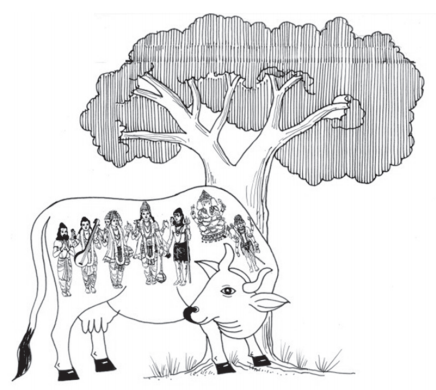“If I was a Tree: Question and Answers” is a powerful and thought-provoking poem that explores the themes of social inequality, injustice, and the search for purity. The poem is written from the perspective of a speaker who longs to be a tree, as trees are not subject to the same forms of discrimination and defilement as humans. Read More Plus One English Question and Answers.
If I was a Tree Question and Answers

Question 1.
What does the poem tell us about the sad plight of the untouchables?
OR
How is the problem of untouchability brought out in the poem ‘If I was a Tree’?
Answer:
If western society is guilty of apartheid, India is guilty of the practice of untouchability. No other country is as stratified as India is as far as the caste system is concerned. It is clear from the poem that the speaker has suffered the bane of discrimination in human society. His statement that, if he were a tree, no bird would ask him what caste he is, makes it clear that the speaker is made to feel ashamed of his caste repeatedly.
When he states that the shadow of the tree which is formed on the ground when the sunlight falls on it, wouldn’t feel defiled, it is clear that people keep him at a distance and do not allow even his shadow to come in their way as he and his shadow are considered impure. When he talks about the sweet friendship with the cool breeze and leaves, it is crystal clear that in society not many extend to him their hands of friendship. When he avers that raindrops wouldn’t turn back from him considering him a dog eater, it is understandable that people from whom he hoped for sustenance just as a tree gets its sustenance from water, he got only abuse and rejection.
When he writes that mother earth wouldn’t flee from him with the fear of getting defiled, the picture of upper caste people shooing him away forms in the imagination of the readers. The phrase ‘branching out’ makes it clear that the hopes and aspirations of the lower caste people are curbed and they are not allowed to make use of their potential. The image of the sacred cow coming to the tree and giving the tree the joy of being touched by the three hundred thousand gods sheltering inside her, the speaker shows that entry to sacred places is denied to him. It could even be an ironical reference to the higher caste people who worship cows as divine but fail to see divinity in their fellow human beings. It could even be a mockery of the upper caste people who worship thousands of gods but have no respect for their brethren.
Finally, when the speaker says that if he were a tree he would have the privilege of being burnt in the holy fire or becoming the bier, it is clear that, as a human being, he knows that he would be shunned even after death and wouldn’t be allowed a decent death. Thus, as a human being, in life and death, he would be condemned, but as a tree, he would live a life of dignity and joy. Thus the speaker makes it clear that instead of being born as a human being in a society which practises discrimination, it is better to be born as a tree or any other creature in nature, as in nature there is no division.
Question 2.
How does the poem ‘If I was a Tree’ express the pain and plight of a particular community?
Answer:
The poem, ‘If I was a Tree’ presents a satirical account of the cruel and inhumane practise of caste discrimination practiced in Indian society. The poem presents the impersonal and large-hearted treatment of nature vis-a-vis the pettiness of man. The speaker speaks in the persona of an untouchable and presents some instances of untouchability that he/she is subjected to. He uses the tree as a metaphor for representing the plant world and highlights how agents of nature like the sunlight, the cool breeze and the raindrops would have treated an untouchable if he were not a tree when they come in contact with him.
The speaker says that if only he was not a tree his shadow would feel defiled when the sunlight embraced him; his friendship with the cool breeze and the leaves would not be sweet; the raindrops, taking him as an untouchable, would refuse to give him water to quench his thirst and the mother earth would flee him asking for a bath if she came to know that he was branching out further from his roots.
Similarly, taking the bird as a representative of the animal world, the speaker says that if he were not a tree the bird would have asked him what caste he was if he wanted to build its nest on the tree. Similarly, if he were not a tree the sacred cow would not scrape her body on him scratching whenever it itched her and incidentally all the three hundred thousand gods sheltering inside her would not have touched him.
The speaker concludes optimistically, hoping that, because he is a tree at least, after its death the tree would be hacked into pieces of dry wood, and would be either used as fuel for the holy fire or a bier for a dead body. The pieces of wood, when they burn as fuel in the holy fire, would make him pure and if not, as a bier for a sinless body he would be borne on the shoulders of four good men. Thus the poem expresses the anguish and desperation of the untouchables.
